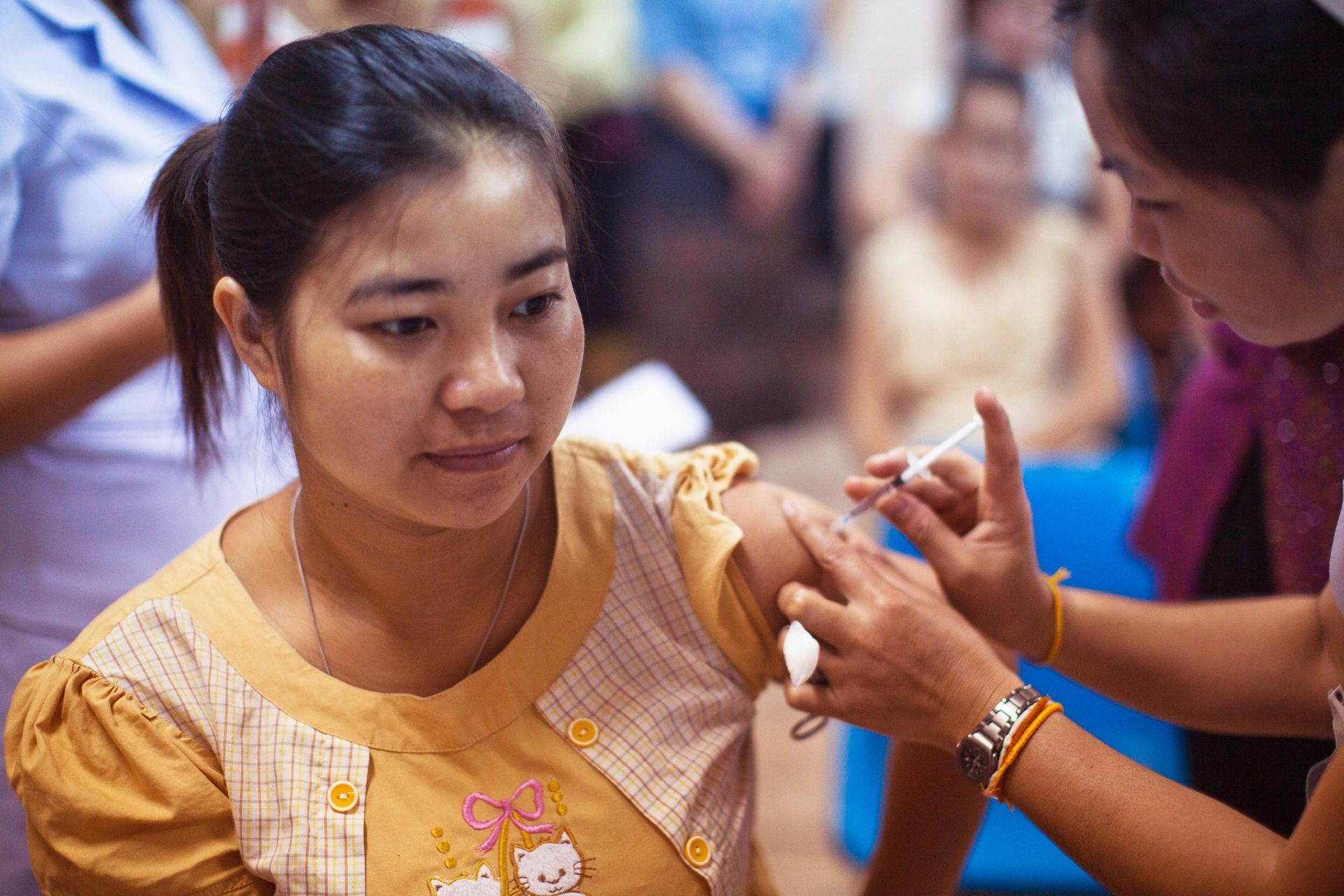HUMAN PAPILLOMA VIRUS VACCINE: GARDASIL
HPV
The Human Papillomavirus (HPV) vaccine is given to protect against various cancers and conditions caused by HPV. This vaccination guards against nine serotypes of HPV, significantly reducing the risk of several cancers in both men and women, such as cervical, anal, throat, and penile cancers, as well as preventing certain types of genital warts.
One of the primary benefits of the HPV vaccine is its ability to prevent cervical cancer in women. PAP smears, HPV DNA tests, colposcopy and biopsy are all HPV tests that are routinely done in women’s health to try to detect this type of cancer. Invasive treatments, disability, infertility and death are all possible complications of cervical cancer.
Since certain strains of HPV that lead to cancer are sexually transmitted, it is crucial to develop immunity before exposure to the virus. This is why health experts recommend administering the vaccine at the age of 11 or 12, though it can be given as early as age 9. The vaccine is recommended for both girls and boys to prevent their respective infections and cancers.
The Social Media Blitz: In 2007, Governor Rick Perry of Texas issued an executive order requiring that school girls in Texas entering the 7th grade receive the HPV vaccine. This decision provoked significant debate and resistance, primarily fueled by resistance to governmental vaccine mandates with the loss of freedom of choice. This action directly led to the online spread of misconceptions and myths regarding the vaccine’s safety by many in Texas. There were many false claims that were circulated widely on social media at the time which still persist today.
In addition, the timing of the mandatory injection of a new vaccine against a sexually transmitted infection coupled with the onset of puberty in young school girls was just too much for many Texas parents to take. This was a most unwelcome intrusion. These factors lead to parental vaccine hesitancy, fear and anger in many Texas parents regarding the mandated HPV vaccination.
It’s important for parents to recognize that much of the HPV vaccine’s negative portrayal on social media today is rooted in unfounded claims against the HPV vaccine that were intended to exert political pressure in Texas, which were ultimately successful in the mandate’s reversal. No longer is HPV vaccination required for school attendance in Texas. The same is true in Arkansas. This vaccine is not required for school attendance.
HPV vaccination remains a hot topic online, where pro-vaccine messages provide factual information, whereas anti-vaccine messages tend to appeal to emotions, potentially overshadowing the logical reasons for vaccination.
Anti-vaccine messages on social media include raising safety concerns by claiming the vaccine is unsafe or improperly tested and highlighting anecdotal reports of adverse reactions while ignoring the scientific consensus on safety. Misinformation about the vaccine's efficacy is also common, with assertions that it is ineffective and/or unnecessary despite iron-clad medical evidence and data that HPV causes deadly cancers. Distrust in scientific and medical bodies is fostered through statements suggesting pharmaceutical companies and regulatory agencies have ulterior financial motives in promoting the vaccine.
Moral and ethical arguments are made, asserting that the vaccine promotes promiscuity or conflicts with personal or religious beliefs. Conspiracy theories accuse the vaccine of being part of a larger agenda for profit or population control. Emotional, yet unverified, personal stories about alleged negative vaccine outcomes can be particularly persuasive, despite lacking any credible scientific support. Misleading statistics are sometimes presented to exaggerate risks or minimize efficacy. This dynamic has important implications for how social media can adversely affect matters of public health. Social media gives everyone a platform to reach the masses, including people with no knowledge of vaccine data with their messages, including erroneous messages that do harm.
These negative messages create fear and confusion among parents, fueling vaccine hesitancy and reducing vaccination rates, which public health campaigns strive to counter with accurate information and evidence-based responses. Extensive research along with reporting of actual adverse events on the Vaccine Adverse Event Reporting System (VAERS) shows that the HPV vaccine is safe and effective, with strong endorsements from health organizations like the Centers for Disease Control and Prevention (CDC), the Food and Drug Administration (FDA) and the World Health Organization (WHO). Yet, its unfounded negative social media reputation still persists today. The benefits of the HPV vaccine in preventing certain types of cancers and genital warts far outweigh the risks of potential side effects.
Vaccinating adolescents at the recommended age is crucial for protecting their future health and contributes to the broader public health effort against HPV-related diseases. Addressing misinformation is essential for making informed healthcare choices that prioritize your child’s well-being. The take home message is simple: the HPV vaccine is safe and effective at preventing HPV infection and cancer. It is given before sexual activity begins, explaining the age we recommend giving it: 11 years.


